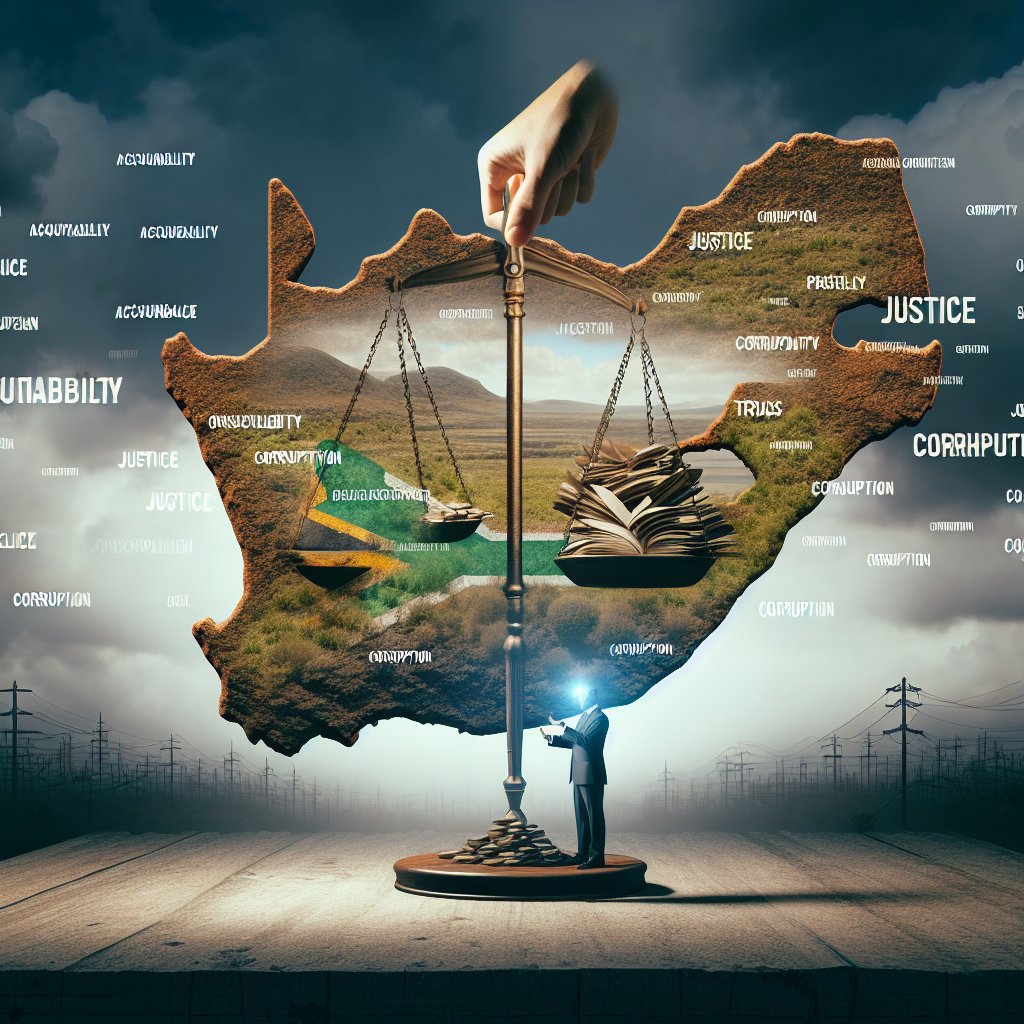Content created by AI
The Erosion of Justice: Unfulfilled Promises and the Rise of State Capture Denialism
The National Prosecuting Authority's (NPA) struggle to hold influential figures accountable in the face of rampant corruption allegations has left a significant dent in South Africa's justice system. This failure has granted leeway to state capture denialists, who have launched concerted efforts to reframe the narrative of recent history. The inability to secure convictions against the accused has generated skepticism regarding the NPA's effectiveness, and critics are questioning the organization's capability to deliver on its mandate.
As the National Director of Public Prosecutions, Shamila Batohi's ascent to her role in 2019 was marked by her staunch commitment to tackling the deep-seated corruption jeopardizing the nation. Her assertive stance on combating the greed and avarice eroding the foundation of the country's democratic ideals garnered widespread hope. The public, yearning for justice, had anticipated a new era of accountability. However, the ensuing years have not borne the fruit of these aspirations.
In a series of frustrating hurdles, the NPA has lost every significant legal attempt to prosecute those implicated in state capture since Batohi's appointment. The collapsing cases against figures purportedly involved in corruption have permeated the public domain, with detractors using these failures to promote the dangerous narrative that state capture is a myth—despite the overwhelming evidence to the contrary presented at the Zondo Commission.
The consequences of such misinformation are profound. As denialists gain traction, the fabric of truth is torn, creating a polarized environment where facts become casualties. The lack of successful prosecutions provides these groups with fodder to claim that allegations of state capture are politically motivated or fabrications. Public faith dwindles not only in the capacity of the NPA to serve justice but also in the truth of state capture itself.
The mismanagement of these high-profile cases has ramifications beyond mere legal outcomes. There is a growing sense that the powerful evade justice, eroding the rule of law and diminishing the public's respect for legal institutions. This emboldens those engaged in graft as they observe the lack of repercussions for their peers. For a society striving to root out corruption, this backlash against accountability movements is demoralizing and has the potential to stifle further progress.
One cannot ignore the complex challenges faced by the NPA, including the intricate web of political influence, lack of resources, and the legal savvy of the accused who can afford top-tier defense strategies. The fraught environment in which Batohi's NPA operates is fraught with obstacles. However, the dire need for successful prosecutions to cement the legal system's legitimacy and restore public trust is more crucial than ever.
South Africa now stands at a crossroads, and its path forward will define the integrity of its democracy. To prevent the further deterioration of the justice system, substantial reforms and support are required. A reassessment of strategies within the NPA and stronger collaboration among law enforcement agencies could pave the way for meaningful advancements.
Furthermore, civil society and media play a pivotal role in maintaining the narrative grounded in the reality of state capture. It is essential to combat the spread of misinformation by persistently highlighting factual information and the importance of a credible, robust justice system. By doing so, South Africans can endeavor to safeguard the pillars of their democracy.
In conclusion, the shadow that looms over the NPA serves as a stark reminder of the difficulties that lie ahead. Although the promise of definitive action against corruption has waned, the commitment to that promise must be reignited. The battle for accountability and the preservation of South Africa's ethical backbone continue, with the hope that the struggles of today will lead to a more just and transparent tomorrow.










